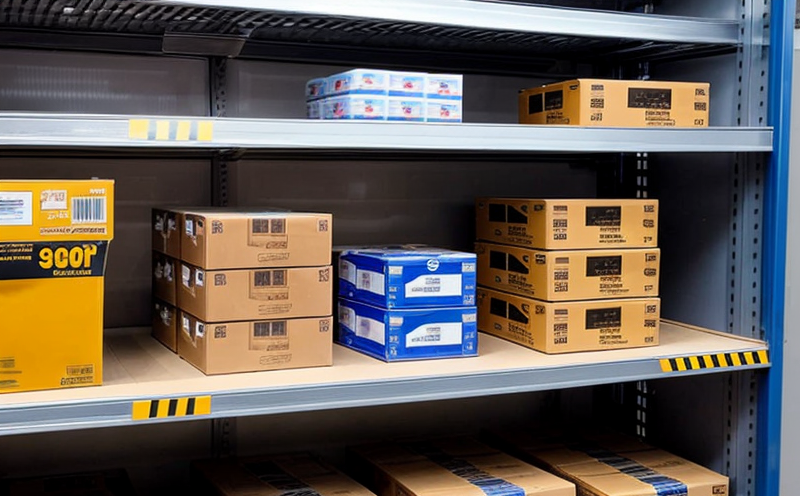Freeze-Thaw Stability Testing of Packaged Devices
In medical device testing, ensuring that packaged devices maintain their integrity and efficacy through various environmental stresses is paramount. Freeze-thaw stability testing specifically examines how packaging materials withstand repeated cycles of freezing and thawing, which can occur during cold chain distribution or storage conditions. This critical test assesses the impact of temperature fluctuations on the physical properties of the packaging as well as the potential for moisture ingress that could compromise device integrity.
Medical devices often require precise and sterile environments to function effectively, especially in surgical contexts. Packaging plays a crucial role in protecting these devices from contamination and environmental factors such as heat, humidity, and mechanical stress. Freeze-thaw cycles simulate real-world conditions that the packaging might encounter during transportation and storage, thus ensuring durability and reliability of the product.
The freeze-thaw stability test is essential for compliance with regulatory standards like ISO 17654:2019 which specifies requirements for the design, construction, testing, and qualification of primary packaging systems. This standard ensures that medical device packaging can withstand the environmental conditions it will encounter during its lifecycle.
During the freeze-thaw test, samples are subjected to a series of controlled temperature cycles—typically from -20°C to +4°C for repeated periods. The intervals and number of cycles depend on specific regulatory guidelines or internal specifications but generally range from three to five cycles. After each cycle, the packaging is visually inspected for any signs of deterioration such as tears, cracks, or bulges.
Additionally, moisture content within the packaging can be measured using techniques like Karl Fischer titration, which quantifies trace amounts of water present in the sample. This measurement helps determine if there has been an increase in humidity due to the freeze-thaw cycle, indicating potential for product degradation or contamination.
The results of this test are vital not only for ensuring compliance with regulatory requirements but also for protecting patient safety and maintaining the efficacy of medical devices throughout their shelf life. By identifying any weaknesses early on through rigorous testing protocols, manufacturers can improve product design and enhance overall quality assurance processes.
For instance, understanding how packaging behaves under freeze-thaw conditions allows engineers to make informed decisions about material selection and structural modifications that could better withstand such environments. This knowledge translates into more reliable products reaching healthcare providers who depend on consistent performance from these devices.
Why It Matters
The importance of freeze-thaw stability testing cannot be overstated, particularly when it comes to ensuring the safety and efficacy of medical devices. Regulatory compliance is one reason why this type of testing is critical; failure to meet standards could lead to non-compliance fines or even product recalls. However, beyond mere regulation adherence, successful completion of these tests demonstrates a commitment to quality assurance that builds trust between manufacturers and healthcare providers.
- Ensures Regulatory Compliance: Freeze-thaw stability testing aligns with international standards such as ISO 17654:2019, ensuring that the packaging meets all necessary criteria for primary containment systems.
- Promotes Patient Safety: By validating that packaged devices remain intact and uncontaminated after exposure to temperature extremes, we reduce risks associated with compromised integrity leading to potential infections or ineffective treatment.
- Enhances Product Reliability: Identifying vulnerabilities in packaging early allows for necessary adjustments improving both longevity and performance of the device throughout its intended use.
Eurolab Advantages
Eurolab offers comprehensive services tailored to meet the needs of our clients in medical device testing. Our state-of-the-art facilities equipped with advanced analytical tools and experienced technicians ensure accurate results every time.
- Comprehensive Testing Capabilities: We provide a full range of tests including freeze-thaw stability, moisture content analysis, and more ensuring all aspects of packaging integrity are covered.
- ISO/IEC Accreditation: Our laboratories hold ISO/IEC 17025 accreditation, guaranteeing high standards in testing methodologies and equipment calibration.
- Expert Technical Support: Our team of specialists offers guidance throughout the entire process from initial consultation to final report generation ensuring you receive the best possible service.
Quality and Reliability Assurance
Freeze-thaw stability testing is a cornerstone of quality assurance efforts aimed at maintaining consistent product performance across all environments. Ensuring that packaging withstands repeated temperature fluctuations helps prevent contamination, maintains sterility, and preserves the integrity of medical devices during transport and storage.
- Moisture Content Monitoring: Regular monitoring of moisture content within packaged units is crucial to detect any changes in humidity levels. This ensures that the packaging does not become compromised by excessive water vapor, thereby protecting both the device itself and its surrounding environment.
- Visual Inspection: Post-freeze-thaw cycles, close inspection for signs of damage or deterioration becomes essential. Any defects identified should be documented promptly so corrective actions can be taken immediately.





